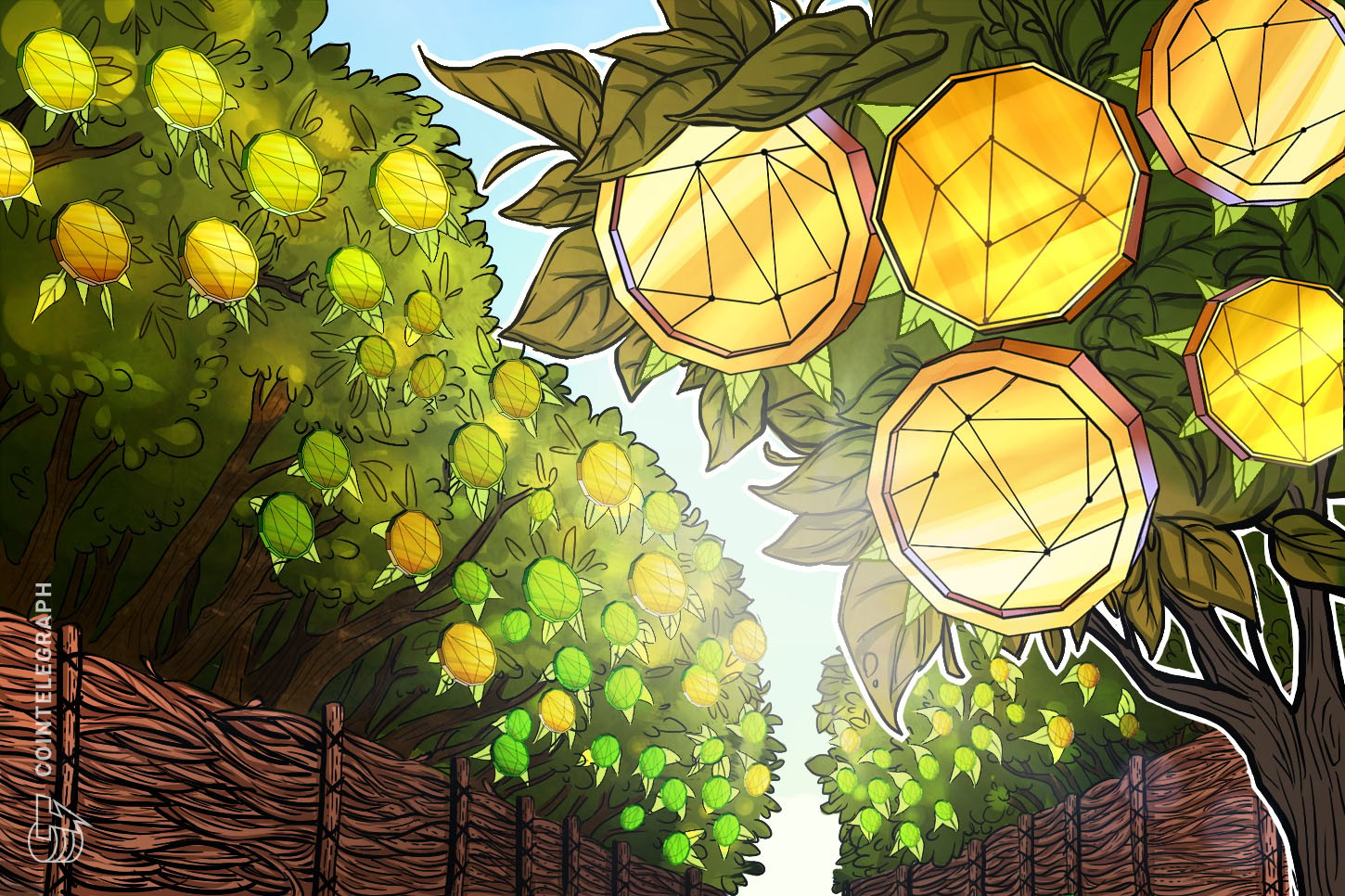A new token, Squid Game (SQUID) — inspired by the eponymous Netflix show — has posted 45,000% growth in a few days after launching earlier this week, but multiple investors are reportedly unable to sell the token.
“We have received multiple reports that the users are not able to sell this token in PancakeSwap. Please exercise caution while trading,” major crypto tracking website CoinMarketCap noted in a warning about the SQUID token on its website.
According to CMC, PancakeSwap is the only market available for trading SQUID at the time of writing. The token is trading at $5.71 and is among the top gainers on CMC, with a daily trading volume of $7 million.

Amid SQUID’s mind-blowing growth coupled with reports on the inability to sell the token, some enthusiasts in the crypto community have alleged that the new coin is likely to be a scam scheme.
Twitter user Crypto Tyrion observed that the Squid Game token founders, who are mentioned on its website, are not on major professional network LinkedIn. They also stressed that the Squid Game token was blocking Twitter comments. “100% rug pull,” Crypto Tyrion said.
Closed Telegram group: ❌❌❌❌
— Crypto Tyrion (@Cryptotyrion) October 29, 2021
Closed discord: ❌❌❌❌
Blocked Tweets comments: ❌❌❌❌
No founder Linkedin: ❌❌❌❌
CNBC article to pump: ❌❌❌❌
CONFIRMED SCAM@IncomeSharks @jaynemesis
Some observers also pointed out apparent issues in the Squid Game token’s white paper, including poor grammar, spelling errors and claims that are “impossible to verify.” According to popular scam-check source Scamadviser, the Squid Game token’s website is suspicious, with a trust score of 45 out of 100.
The idea of the Squid Game token is inspired by Netflix’s eponymous show where players risk their lives to play deadly games in hope of a big payout. The token is said to allow players to participate in six online games, with the goal of winning prize money.
On Friday, CMC issued a post noting that SQUID’s rally may mean that playing the Squid Game described in the project’s white paper may be unaffordable for most participants due to SQUID holdings requirements. As such, the sixth, final game would require players to hold 15,000 SQUID, which is over $80,000 at the time of writing.
CMC’s major rival, CoinGecko, has preferred to stay away from SQUID. “This token did not meet our listing criteria hence it will not be listed on CoinGecko. It’s most likely a scam,” CoinGecko co-founder Bobby Ong told Cointelegraph. He also stressed that CoinGecko is not the Squid Game token’s partner, as mentioned on its website: “This is most certainly not true and we are not a partner nor are we affiliated with Squid Game.”
Related: YouTube channels hacked and rebranded for live-streaming crypto scams
In its white paper, the Squid Game token is said to implement an “anti-dump mechanism” that prevents investors from selling their coins in a similar manner to major cryptocurrencies like Bitcoin (BTC). Specifically, users must hold so-called “Marbles” tokens in order to sell a certain amount of SQUID, the white paper notes:
“If you hold some Marbles, you can sell certain amount of SQUID at any time you want on PancakeSwap. After you sell some SQUID those Marbles in your wallet will be automatically burned.”
The white paper doesn’t provide much information about Marbles other than that “Obtaining Marbles without using violence is the key to Squid Game.”
“Liquidity of SQUID will be locked for three years on DxSale which prevents any unseen and immediate changes to SQUID liquidity pool. Unlock date is Oct 20th, 2024,” the white paper also reads.
Cointelegraph reached out through contact information listed on the Squid Game website with additional queries but didn’t hear back immediately.


